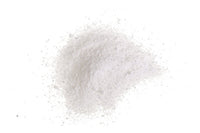Adults take 1 capsule daily with food or as directed by a healthcare professional.
Dietary supplements can be a helpful addition to your health routine, providing essential vitamins, minerals, or other nutrients that may be lacking in your diet. However, it's important to use supplements with caution and under the guidance of a healthcare professional.
Supplements are not intended to replace a healthy diet or treat any medical conditions. It's crucial to consult with your doctor or a registered dietitian before starting any new supplement, especially if you have any underlying health issues or are taking medications. Some supplements may interact with medications or have adverse effects, so it's important to be aware of the potential risks and discuss them with your healthcare provider. They can help you choose the right supplements, determine the appropriate dosage, and monitor any potential side effects. Remember, supplements are meant to complement a healthy lifestyle, not replace it. Prioritize a balanced diet and regular exercise for overall well-being.
Glass recycling is the process of converting used glass products into new materials. It is a crucial step in conserving resources and reducing waste sent to landfills. Glass, unlike many other materials, can be recycled infinitely without losing quality or purity. This means that each time you recycle a glass bottle or jar, it can be melted down and transformed into another glass product, over and over again.
The recycling process starts with collecting and sorting used glass items. These are then cleaned and crushed into small pieces called cullet. The cullet is melted at high temperatures in a furnace and molded into new shapes for bottles, jars, or other glass products. Recycling glass saves energy, reduces the need for raw materials like sand and limestone, and decreases air and water pollution associated with manufacturing new glass. By choosing to recycle glass, you contribute to a more sustainable and environmentally friendly future.












